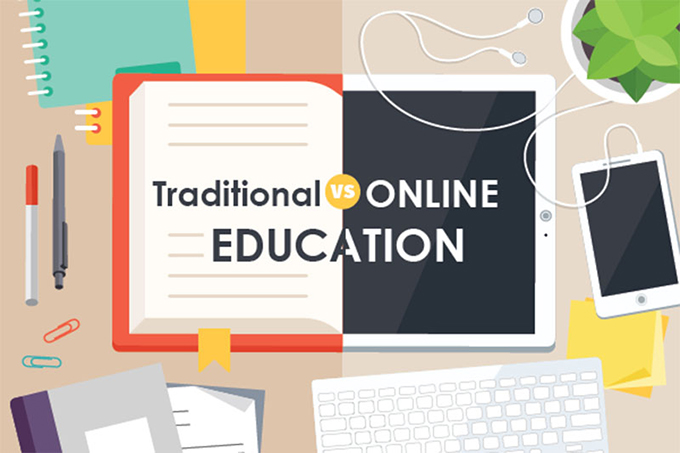
Among the angles of analysis that these times of pandemic offer us, it is necessary to stop at one that, for those of us dedicated to the world of education, offers its own nuances. Suddenly, in the middle of the academic year, we have had to change the way we relate to our students, with our classmates and with the organization to which we belong, going on to work as full-time “tele-teachers”.
All this occurs within the framework of a competitive escalation in which the immense knowledge industry has been submerged for a long time . An industry that makes the diversification of the offer of training products in online format a priority . The trend is there: it is driven by the market (especially the producers of content and applications), it is assumed by educational institutions, it is supported by governments and a specific customer-student profile is demanded.
The best and worst of educational technology
The possibilities offered by digital platforms can be excellent aids in certain situations. In the current circumstances, they are making it possible for us to keep teaching with closed educational centers, working the miracle of “remote attendance”. And they do it in conditions that the students seem to accept without problems by adapting naturally to their condition as digital natives.
However, considering the evident always ambivalent nature of technology, we cannot fail to attend to the negative aspects that it involves. Starting with the material conditions to carry out our activity, we realize that it is necessary to have certain resources in our homes (knowledge, equipment, applications, bandwidth …).
This demand often collides with the numerous digital gaps that exist even among us, casual inhabitants of the so-called first world.
Speed is contrary to reflection
Secondly, we check again how the essential characteristics of many of the technologies used – such as speed or immediacy – on many occasions are articulated very problematic with reflection, correction of expression, rigor and slowness – yes , the slowness – necessary in the educational task.
“Fast is better than slow”, a sound statement by one of the large technology corporations (leader in the online applications for education market), may be applicable in certain contexts, but it certainly is not in others, including educational .
Learning needs context
A third aspect arises when remembering that processes as properly human as teaching-learning are necessarily accompanied by a context, by circumstances, by an infinity of small details of all kinds. Elements that only exist in the physical space and that are what give this process full meaning and meaning, by containing an essential part of the process of interaction and communication .
There are other possible consequences, such as those derived from the new digital environments in many of our rights such as privacy or property. Suffice it here at least to highlight an evidence that in the educational field we tend to forget: the virtual can never replace the real. Even without going into the assessment of its greater or lesser quality, at least we recognize that it is incomparable, that it is something else and, therefore, it will never adequately replace it.
Not everything has a technological solution
Finally, let us remember that, beyond specific discrepancies, this situation provides a new element applicable to many other aspects of human development. It is important to flee once again from ” technological solutionism “. From the obvious danger of assuming that social problems can be solved with exclusively technical solutions.
These days we see it very clearly: there are elements that are not directly linked to technique that are essential, such as personal disposition, professional responsibility, business ethics or political legitimacy.
Hopefully we can regain lost sociability when circumstances allow it. The physical space that surrounds us, the feeling of being part of a group, the games of looks and gestures, the constant human interactions are always opportunities for valuable teachings and learning for our lives. All this, and much more, is at stake.
It depends on all of us, people and institutions called to responsibly exercise our teaching work. It will be our task that, after this experience, we continue to claim direct, real interaction as the most appropriate, albeit costly and demanding, way of an educational relationship. Hopefully we can repeat what we do not value what we have until we have lost it. And hopefully we can have a chance to get it back.
Author Bios: Pedro M. Sasia is a Research Professor in organizational ethics and Galo Bilbao Alberdi is an Ethics teacher and Researcher at the Center for Applied Ethics both at the University of Deusto,
